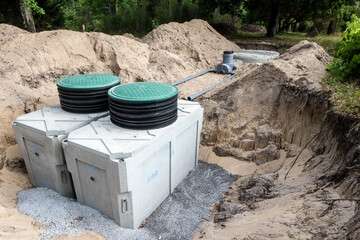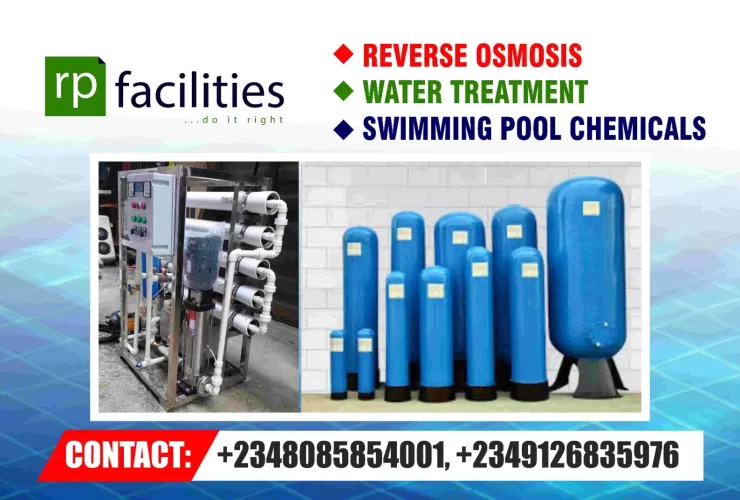Understanding Sewage Treatment and Its Importance: An Insight into Biodigester Sewage Treatment
Sewage treatment is a critical process essential for maintaining public health and protecting the environment. For those in Lagos, understanding the complexities of sewage treatment and the significance of biodigester sewage treatment can help in making informed decisions regarding waste management. This article delves into the core aspects of sewage treatment, highlighting the key pollutants and contaminants present in sewage, and the reasons for their removal. If you’re looking for a reliable sewage company in Lagos, this comprehensive guide will also provide the necessary insights.
What is Sewage and Why is Treatment Essential?
Sewage, commonly known as wastewater, is water that has been adversely affected in quality by human influence. It contains a myriad of pollutants and contaminants that must be treated before being released into the environment to prevent adverse effects on public health and ecosystems.
Key Pollutants and Contaminants in Sewage
- Organic Pollutants
- Organic Compounds: Sewage contains dissolved organic compounds like sugars, proteins, alcohols, and fats. These compounds originate from household waste, industrial discharge, and food processing units.
- Organic Solids: The presence of organic solids, including food waste and fecal matter, contributes significantly to the organic load in sewage.
- Reasons for Removing Organic Pollutants
- Environmental Protection: Discharge of untreated organic compounds into water bodies can lead to severe pollution, resulting in oxygen depletion and harming aquatic life.
- Measurement: Organic matter is typically measured using parameters such as Chemical Oxygen Demand (COD) and Biochemical Oxygen Demand (BOD). High levels of COD and BOD indicate a significant presence of organic pollutants, necessitating effective treatment.
- Nutrients: Nitrogen and Phosphorus
- Nutrient Pollution: Sewage often contains high levels of nitrogen and phosphorus, which can cause eutrophication in receiving water bodies. This process leads to excessive algal blooms, resulting in oxygen depletion and loss of species diversity.
- Effluent Standards: To meet effluent discharge standards, it is crucial to remove these nutrients during the treatment process.
- Solids Characterization
- Dissolved and Suspended Solids: Sewage contains both dissolved solids and suspended solids. Suspended solids can be further classified into settable, non-settleable, organic (volatile), and inorganic (fixed) fractions.
- Importance of Quantification: Accurate quantification of these solids is essential for designing effective treatment processes.
- Pathogenic Organisms
- Health Risks: Sewage harbors high concentrations of pathogenic organisms, including bacteria, viruses, and protozoa, which pose significant public health risks.
- Pathogen Removal: Depending on the effluent discharge requirements, the removal of pathogens is a critical step in the sewage treatment process.
- Emerging Contaminants
- Priority Pollutants: In addition to traditional pollutants, sewage can contain emerging contaminants such as pharmaceutical residues and endocrine disruptors.
- Monitoring and Removal: There is an increasing need to monitor and remove these emerging contaminants to ensure comprehensive sewage treatment.
Biodigester Sewage Treatment: A Sustainable Solution
Biodigester sewage treatment is an innovative approach that employs biological processes to treat sewage effectively. This method is gaining popularity in Lagos due to its efficiency and sustainability.
- How Biodigesters Work: Biodigesters use anaerobic digestion, where microorganisms break down organic matter in the absence of oxygen. This process not only reduces the organic load but also produces biogas, which can be used as a renewable energy source.
- Advantages of Biodigesters: Biodigesters are environmentally friendly, reduce the volume of sewage sludge, and lower greenhouse gas emissions. They also require less maintenance compared to conventional treatment systems.
Contact for Sewage Companies in Lagos
If you’re in Lagos and need professional sewage treatment services, it’s essential to work with a reputable company that understands the local challenges and offers reliable solutions.
- RP Facilities Ltd: As a leading water, wastewater, and facility management company, RP Facilities Ltd is at the forefront of providing innovative sewage treatment solutions in Lagos. They specialize in both conventional and biodigester sewage treatment systems, ensuring compliance with environmental and public health standards.
Conclusion
Effective sewage treatment is crucial for safeguarding public health and protecting the environment. The key pollutants that need to be removed from sewage include organic matter, nutrients, solids, and pathogens. Biodigester sewage treatment offers a sustainable solution by efficiently breaking down organic matter and producing renewable energy. For those in Lagos, partnering with a reliable sewage company like RP Facilities Ltd can ensure that all sewage treatment needs are met with expertise and innovation.
By understanding the importance of removing contaminants from sewage and choosing the right treatment methods, we can contribute to a cleaner and healthier environment. Whether you’re a business, residential community, or industrial facility, investing in proper sewage treatment is essential for sustainable development in Lagos.
For more information or to schedule a consultation, contact RP Facilities Ltd today and take the first step towards efficient and effective sewage treatment solutions.




This article does an excellent job of breaking down the importance of sewage treatment in a way that’s both accessible and informative. As a general contractor, I appreciate how it highlights the critical role sewage treatment plays in environmental health and public safety. The explanation of primary, secondary, and tertiary treatment processes offers a clear view of how wastewater is managed and the complexities involved in each stage.
One part I found particularly valuable is the emphasis on the positive impact of proper sewage treatment on groundwater quality. With rising urban development, it’s essential that we protect our water sources to prevent contamination issues down the line. I also appreciated the insights into how effective treatment systems can mitigate unpleasant odors and health hazards—concerns often raised by residential clients near sewage systems.
Do you have any recommendations on how contractors might guide clients in choosing the right sewage treatment options, especially for properties in environmentally sensitive areas?